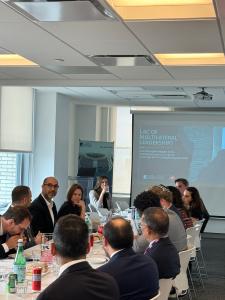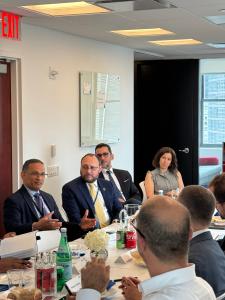On 6 June 2024, Cepei and the Konrad Adenauer Foundation (KAS) New York Office launched their latest policy brief examining how the LAC region engages in the multilateral system, its current challenges and its untapped leadership opportunities. The policy brief, presented by Philipp Schönrock Director of Cepei, offers a unique analysis of leadership roles of countries from Latin America and the Caribbean in the next two years (2024-2025), focusing on the region’s opportunities to make an ambitious and sustained contribution to framing multilateral processes and helping renew multilateral cooperation regionally and globally.
This expert discussion brought together representatives of Member States, the United Nations system and civil society to discuss strategies and options for unlocking the LAC region’s full potential as a proactive and influential force in shaping the future of multilateralism.
The discussion kicked off a series of policy briefs and analyses looking into how different geographical regions engage in multilateralism, to be organized by KAS New York and partners throughout 2024.
The discussions highlighted key challenges and opportunities for the region to shape multilateralism, summarized below:
- There is potential for regional powers such as Mexico, Colombia and Brazil to provide a regional voice and leadership role in multilateral processes, including to shape agendas of the G-20, the UN Summit of the Future, and the COPs on climate and biodiversity. Key policy areas where the region has a special opportunity to further engage and form a stronger coalition include climate action and financing for development.
- There is a need to overcome the lack of trust in multilateral processes through education, advocacy and communication on the benefits of the multilateral system at the regional and sub-national level.
- The complex geopolitical context and fragmentation along ideological and political lines amongst regional players was highlighted as a challenge.
- The need to increase intra-regional coordination between the Caribbean and Latin American sub-regions was raised. The region must make better use of its bargaining power and unify around common agendas if it is to make a sustained contribution to multilateralism in the long-term.
The full policy brief is now available for download.





